AGRICULTURAL FEELING
THe PROject
Kukula began operating in the village of Antintorona in 2019 to enhance the island’s food production system by introducing sustainable agricultural practices.
The project relies on a close collaboration between Kukula’s team, the local population and all relevant stakeholders. The sharing of technical and theoretical knowledge contributed to creating a solid basis for a sustainable and self-sufficient development model.
Sector of intervention

Agriculture and environmental protection
Location
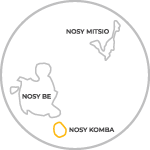
Antintorona
(Nosy Komba),
Madagascar
donors

Private donors
Partners

Malagasy forest guard

and indirect
duration

20 months
(Apr 2019 – Dec 2020)
The problem
The country’s economy is mainly agricultural: the sector employs 74.5% of the workforce, contributing 21.5% to the national GDP. However, only 5.1% of the land area is arable due to the roughness of the land, resulting in agricultural production being below subsistence level.
Among the agricultural practices used for generations in Madagascar, the “slash-and-burn” method has had the greatest negative impact on the environment: farmers deforest and burn large areas of primary forest to obtain plots of arable land, destroying entire ecosystems and seriously threatening the country’s biodiversity.
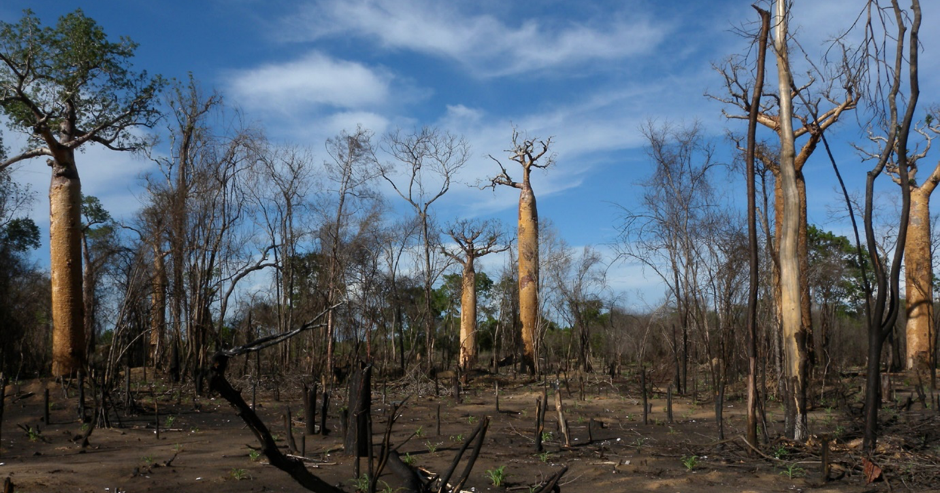
the solution
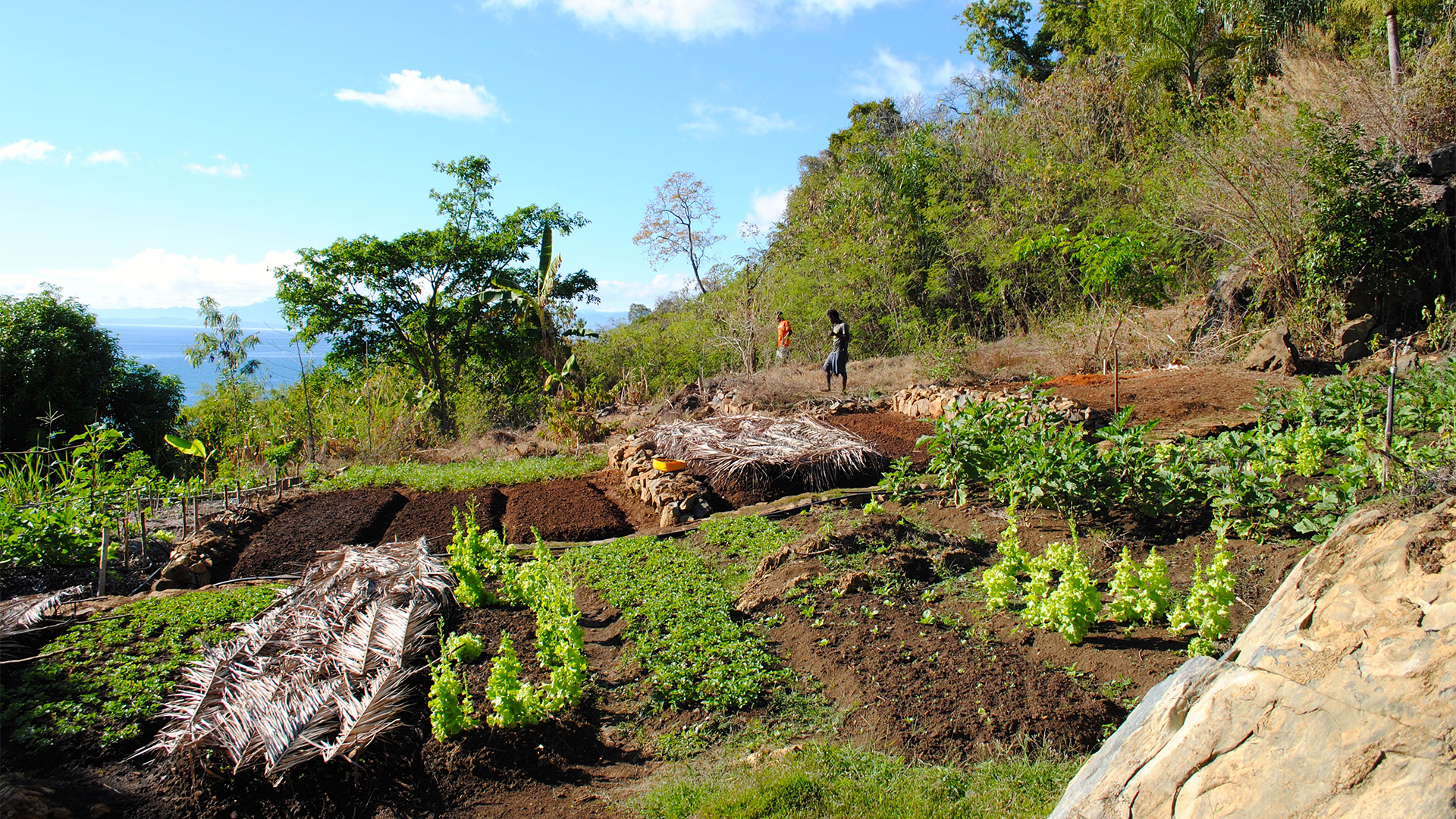
Synergistic agriculture is a method applied in organic farming, a technique that applies agronomic practices aimed at reducing the environmental impact, but also improving soil fertility and the health of the entire soil-microorganism-plant system.

Zero tillage

No fertilizers

No synthetic treatment

No soil compaction
Half of the volume of healthy soils consists of empty spaces, in which air can circulate and water is stored. Continuous aeration is a key element for the survival of all micro-ecosystems in the subsoil.
objectives
Main objective
The main objectives of the project are (1) to promote sustainable food production systems through the introduction of resilient agricultural practices that increase productivity while preserving ecosystems, (2) strengthen the system’s capacity to adapt to climate change and extreme climatic conditions (such as droughts and floods) and (3) progressively improve soil quality.
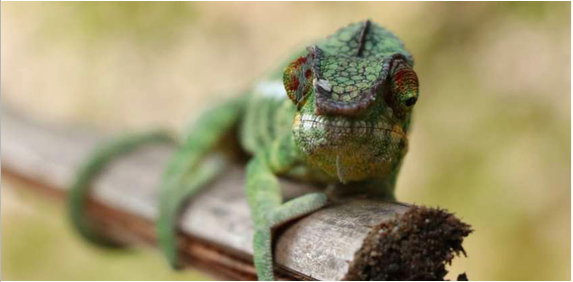
specific objectives
- Train and raise awareness of the local population.
- Optimize the production and reuse of agricultural waste.
- Improve the efficiency of the water system.
- Enhance food security.
- Support economic development.
- Ensure the replicability of the project.

THE activities
The activities foreseen within the project are aimed at implementing a sustainable agricultural development model that can be replicated in different environmental contexts.
In Antintorona, a crop plan was developed by an experienced local farmer and by the project coordinator, who also oversaw the progress of the activities and the management of expenses. Local managers were trained to manage the activities, ensure the replicability and sustainability of the project and train other specialized staff.
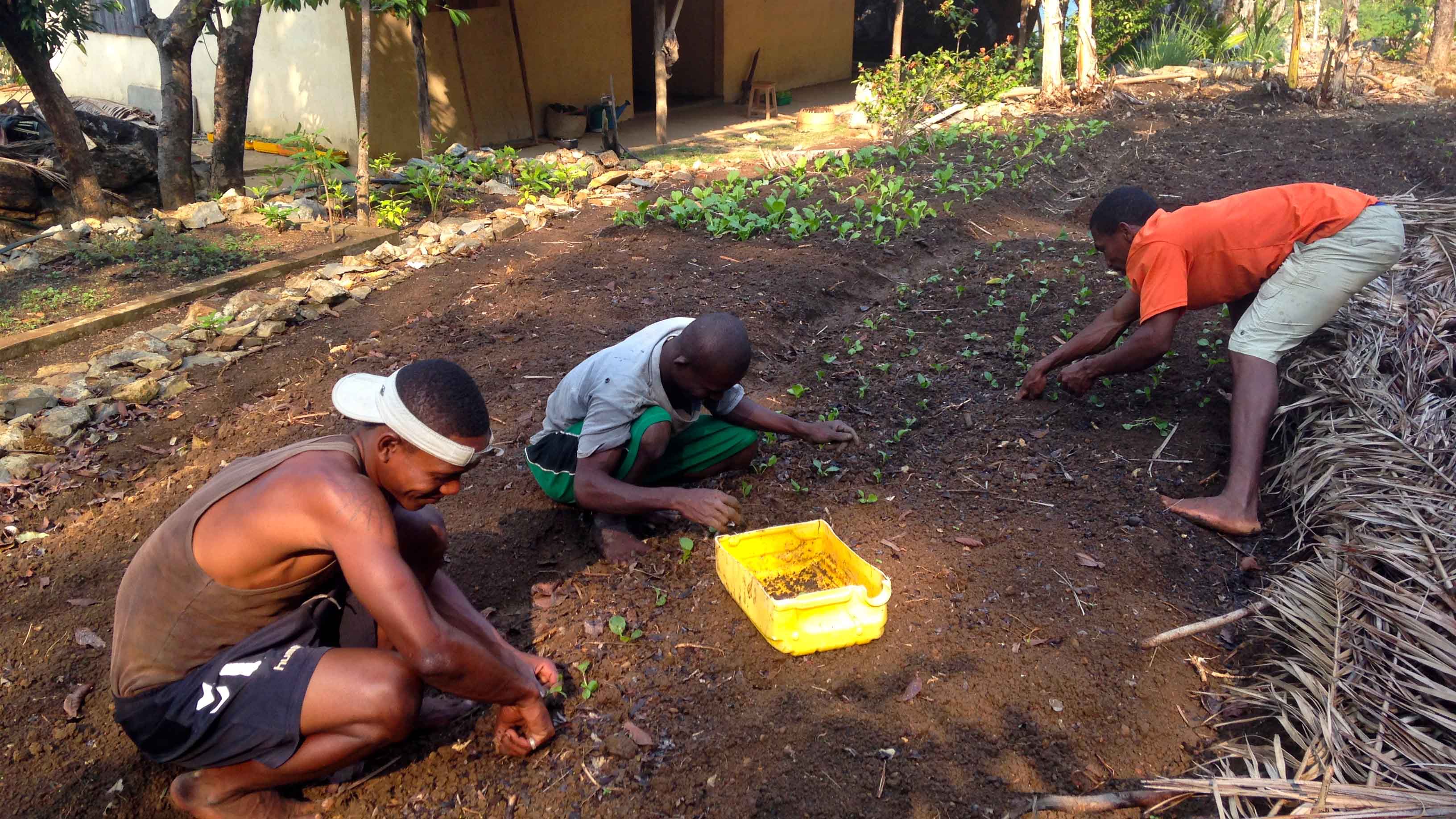
training of local people
expansion of the agricultural area
diversification of production
installation and monitoring
of different irrigation systems and comparison of their efficiency in terms of water consumption and agricultural productivity.
introduction of composting methods
creation of a vegetable market
planting of fruit trees
for the setting up of an agroforestry system.
Diffusion of the project
through the creation of another vegetable garden based on synergic agriculture and the improvement of the water system in the near village of Ampangorina.
For more information download the activity report
